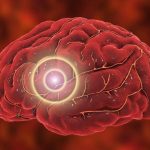
When U.S. parents express their concerns about their school-aged children, social media use and the internet are at the top of the list. Mental health issues are another top worry, according to the University of Michigan Health C.S. Mott Children’s Hospital National Poll on Children’s Health. “Parents still view problems directly impacting physical health, including unhealthy eating and obesity, as important children’s health issues, said pediatrician Dr. Susan Woolford, co-director of the poll. “But these have been overtaken by concerns about mental health, social media and screen time,” Woolford said in a Michigan Medicine news release. Two-thirds of parents surveyed reported that they are worried about children’s increased time on devices, including overall screen time and use of social media. Those were the No.1 and No.2 concerns on the list this year. “Children are using digital devices and social media at younger ages, and parents may struggle with how to appropriately monitor use to prevent negative impacts on safety, self-esteem, social connections and habits that may interfere with sleep and other areas of health,” Woolford said. Screen time became a growing concern for parents during the pandemic, previous reports have suggested. Woolford encourages parents to regularly evaluate their kids’ use of technology. Certain social media and device settings can also help protect kids. Mental and emotional health were among the other top concerns. The majority… read on > read on >


















